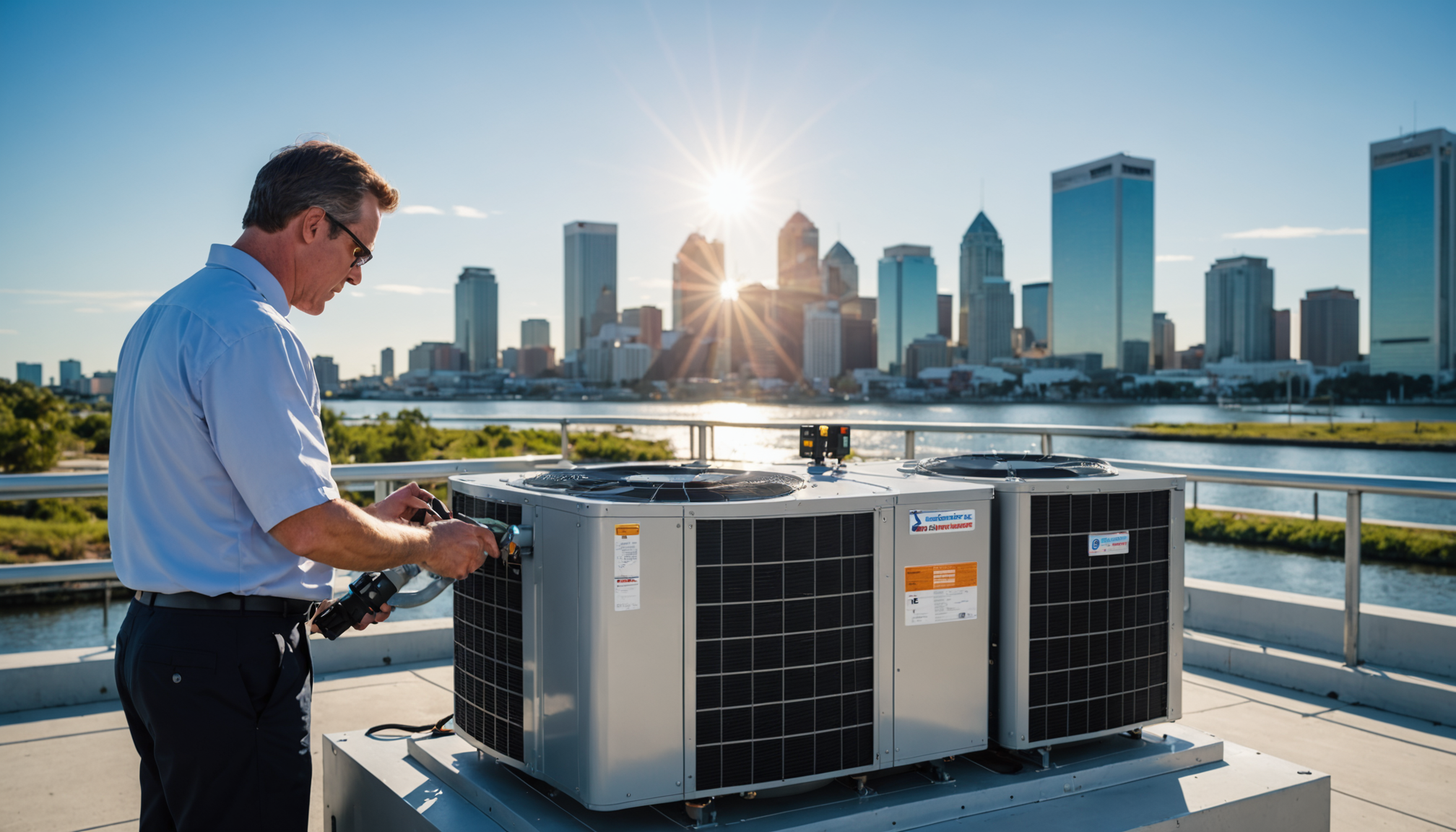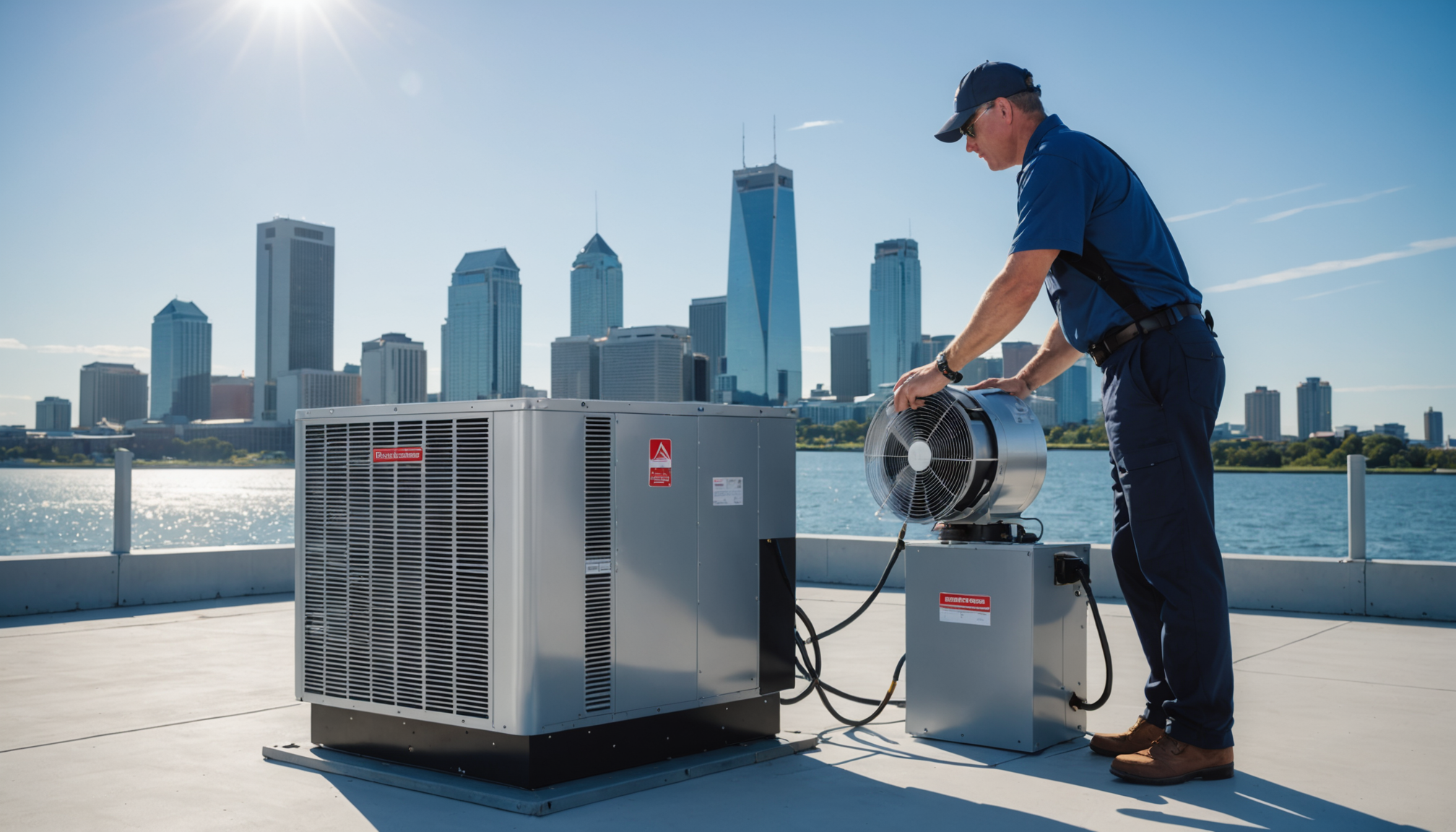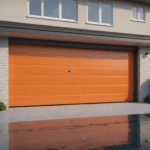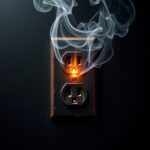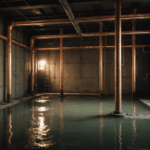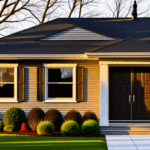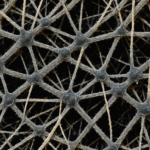Jacksonville’s unique climate, characterized by hot summers with humidity levels frequently exceeding 75%, places exceptional demands on residential HVAC systems. According to the U.S. Department of Energy, HVAC systems account for approximately 48% of home energy consumption in Florida’s climate zone, making regular maintenance crucial for optimal performance.
Studies by the Environmental Protection Agency show that poorly maintained HVAC systems can lose up to 5% efficiency each year, while regular tune-ups can maintain 95% of the original efficiency throughout the system’s lifespan. In Jacksonville’s challenging environment, where air conditioners typically run for over 3,000 hours annually, this efficiency loss can significantly impact both comfort and operating costs.
Professional HVAC maintenance becomes particularly critical due to Jacksonville’s coastal location, where salt air can accelerate component corrosion. The Florida Air Conditioning Contractors Association reports that systems in coastal areas require up to 30% more frequent maintenance compared to inland locations to maintain optimal performance.
- Prevents unexpected breakdowns during peak summer months
- Extends system lifespan by up to 40% according to manufacturer studies
- Maintains indoor air quality by addressing humidity control
- Ensures compliance with manufacturer warranty requirements
Recent data from the Building Efficiency Initiative indicates that proper HVAC maintenance can reduce emergency repairs by up to 75% and cut energy costs by 15-20% annually. For Jacksonville homeowners, this translates to average savings of $200-300 per year on utility bills and potentially thousands in avoided emergency repair costs.
The combination of high humidity and extended cooling seasons makes Jacksonville’s HVAC systems particularly susceptible to issues like mold growth and reduced cooling capacity. The Department of Energy’s research shows that regular maintenance can prevent up to 95% of these common problems, ensuring consistent comfort throughout the challenging summer months.
Common cooling system problems in humid climates
Operating HVAC systems in Jacksonville’s humid climate presents several distinct challenges that can compromise both comfort and efficiency. One of the most prevalent issues is excessive moisture accumulation on evaporator coils, which can lead to reduced cooling capacity and potential mold growth. When humidity levels consistently exceed 65%, condensate drain lines frequently become clogged with algae and bacteria, potentially causing water damage and system failures.
Refrigerant leaks occur more frequently in humid environments, as the combination of moisture and salt air in Jacksonville accelerates corrosion on copper lines and connection points. Industry data shows that systems in high-humidity regions experience up to 40% more refrigerant-related issues compared to drier climates. This directly impacts HVAC efficiency and can increase energy consumption by up to 30% if left unaddressed.
Dirty or clogged air filters become particularly problematic in Jacksonville’s climate, as higher humidity levels cause airborne particles to stick more readily to filter materials. This restriction in airflow forces HVAC systems to work harder, leading to increased energy consumption and potential system overload. Additionally, humid conditions can cause premature wear on electrical components, with moisture-related electrical failures accounting for approximately 25% of service calls in coastal areas.
- Condensate drain lines should be checked monthly during peak humidity seasons
- Replace air filters every 30-45 days in humid conditions, rather than the standard 90 days
- Monitor indoor humidity levels – they should stay between 30-50% for optimal HVAC performance
- Check for signs of corrosion on outdoor units quarterly due to salt air exposure
The prevalence of heat pump systems in Jacksonville homes introduces additional maintenance concerns, as these units work double-duty in managing both temperature and humidity levels. Without proper maintenance, heat pumps can lose up to 25% of their dehumidification capability within two years, significantly impacting indoor comfort and system efficiency.
Professional maintenance checklist
A comprehensive HVAC maintenance checklist should include thorough inspection and cleaning of critical components that are particularly stressed by Jacksonville’s climate. Licensed technicians begin by testing the thermostat calibration and system controls, ensuring accurate temperature readings and optimal performance. Measurements show that poorly calibrated thermostats can decrease system efficiency by up to 7%.
The maintenance process involves several crucial steps:
• Cleaning and inspecting evaporator and condenser coils
• Testing refrigerant pressure and checking for leaks
• Examining and tightening all electrical connections
• Lubricating moving parts to reduce friction
• Verifying proper airflow across the heat exchanger
• Testing safety controls and start-up cycle
• Cleaning or replacing air filters
• Inspecting ductwork for leaks and proper insulation
Technicians must pay special attention to the condensate drain system, as Jacksonville’s humidity makes this component particularly vulnerable to algae growth and blockages. They should also inspect and clean the blower components, which can significantly impact system efficiency when compromised by dust and debris.
According to HVAC industry data, proper maintenance should include:
• Measuring voltage and amperage on all motors
• Testing capacitors and contactors for wear
• Checking heat strips for proper operation
• Evaluating ductwork condition and airflow
• Measuring temperature differentials across components
• Inspecting refrigerant line insulation
• Testing zone dampers and controls
• Checking air handler alignment and belt condition
Professional technicians document all readings and measurements, comparing them to manufacturer specifications to ensure optimal performance. This detailed record-keeping helps track system performance over time and anticipate potential issues before they become major problems.
For maximum effectiveness in Jacksonville’s climate, these maintenance procedures should be performed twice yearly, with additional inspections recommended during extreme weather conditions or after major storms. Regular maintenance following this comprehensive checklist can extend system life by up to 40% and maintain peak efficiency throughout the cooling season.
Preparing your hvac for summer storms
Securing your HVAC system against Jacksonville’s intense summer storms requires strategic preparation and preventive measures. Storm-related power surges can damage sensitive electronic components, while flooding risks threaten outdoor units and electrical connections. Installing a high-quality surge protector specifically designed for HVAC systems can prevent up to 95% of electrical damage during severe weather events.
Before storm season arrives, ensure all outdoor unit mounting brackets and pads are properly secured and elevated above potential flood levels. Industry data shows that properly anchored units are 80% less likely to sustain storm damage. Clear the surrounding area of debris, trimming back vegetation within a 3-foot radius to prevent storm-blown objects from damaging the unit.
Essential pre-storm maintenance steps include:
• Installing or checking drain pan overflow switches
• Securing loose ductwork and sealing any gaps
• Verifying proper grounding of electrical components
• Installing protective covers for outdoor units
• Checking and reinforcing refrigerant line insulation
• Testing backup power systems if available
During Jacksonville’s hurricane season, regularly inspect the outdoor unit’s drain ports to ensure proper water drainage. Clogged drainage can lead to water damage and reduced efficiency, particularly problematic in the aftermath of heavy storms when the HVAC system works harder to manage increased humidity levels.
Consider these storm-readiness upgrades:
• Programmable thermostats with power outage protection
• Flood sensors with automatic shutoff capabilities
• Hurricane straps for outdoor unit stabilization
• Weather-resistant covers for exposed components
• Enhanced filtration systems for post-storm operation
Working with qualified HVAC professionals to implement these protective measures can reduce storm-related repair costs by up to 70%. Many insurance companies offer premium discounts for homes with properly secured and storm-ready HVAC systems, providing additional financial benefits for proactive maintenance.
Remember to document your system’s condition with photos before and after storms, maintain detailed maintenance records, and keep emergency service contact information readily available. Taking these preventive steps ensures your HVAC system remains reliable when you need it most during Jacksonville’s challenging storm season.
Cost-saving benefits of preventive maintenance
- How much money can I really save with regular HVAC maintenance in Jacksonville?
- Regular HVAC maintenance in Jacksonville typically results in 15-25% savings on annual energy bills, averaging $200-400 per year. Additionally, preventive maintenance can help avoid costly emergency repairs, which often range from $500 to $2,000.
- Is it worth paying for a maintenance plan with my HVAC company?
- Maintenance plans are particularly valuable in Jacksonville’s humid climate, as they include priority service and regular inspections that can prevent major breakdowns. These plans typically pay for themselves through reduced energy costs and extended equipment life, saving an average of $1,000-1,500 over the system’s lifespan.
- How often should I schedule professional HVAC maintenance in Florida’s climate?
- In Jacksonville’s demanding climate, HVAC systems should be professionally maintained twice per year – once before summer and once before winter. This frequency ensures optimal efficiency and helps manage the unique challenges posed by high humidity and salt air exposure.
- What happens if I skip regular maintenance for my HVAC system?
- Skipping maintenance can lead to a 5-10% decrease in efficiency each year, resulting in higher energy bills and reduced comfort. Without regular maintenance, system lifespan can be reduced by 30-50%, and the risk of major breakdowns increases significantly.
- How does preventive maintenance affect my HVAC warranty?
- Most manufacturers require documented annual maintenance to keep warranties valid, as proper care is essential for system longevity. Regular maintenance records can protect your warranty coverage and prevent costly out-of-pocket expenses for repairs that would otherwise be covered.
